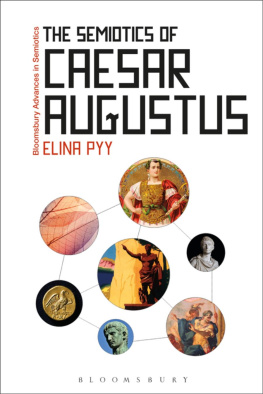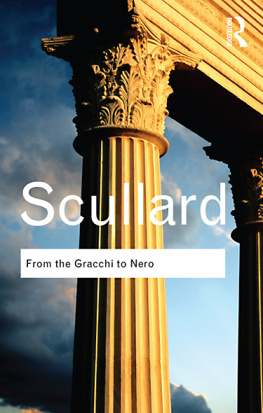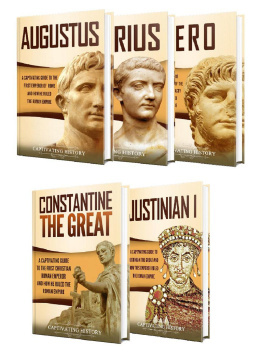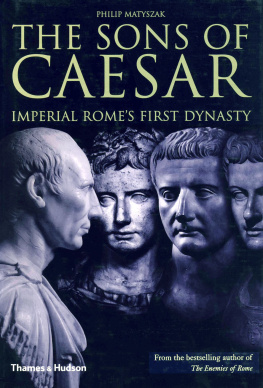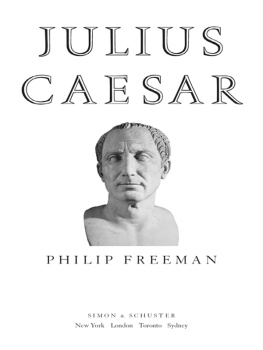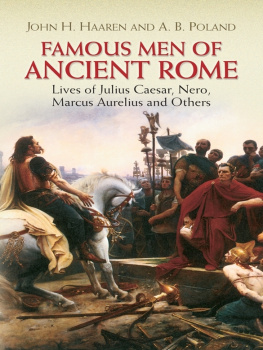David C. A. Shotter - Nero Caesar Augustus : Emperor of Rome
Here you can read online David C. A. Shotter - Nero Caesar Augustus : Emperor of Rome full text of the book (entire story) in english for free. Download pdf and epub, get meaning, cover and reviews about this ebook. year: 2016, publisher: Routledge, genre: Religion. Description of the work, (preface) as well as reviews are available. Best literature library LitArk.com created for fans of good reading and offers a wide selection of genres:
Romance novel
Science fiction
Adventure
Detective
Science
History
Home and family
Prose
Art
Politics
Computer
Non-fiction
Religion
Business
Children
Humor
Choose a favorite category and find really read worthwhile books. Enjoy immersion in the world of imagination, feel the emotions of the characters or learn something new for yourself, make an fascinating discovery.

- Book:Nero Caesar Augustus : Emperor of Rome
- Author:
- Publisher:Routledge
- Genre:
- Year:2016
- Rating:4 / 5
- Favourites:Add to favourites
- Your mark:
- 80
- 1
- 2
- 3
- 4
- 5
Nero Caesar Augustus : Emperor of Rome: summary, description and annotation
We offer to read an annotation, description, summary or preface (depends on what the author of the book "Nero Caesar Augustus : Emperor of Rome" wrote himself). If you haven't found the necessary information about the book — write in the comments, we will try to find it.
Nero Caesar Augustus : Emperor of Rome — read online for free the complete book (whole text) full work
Below is the text of the book, divided by pages. System saving the place of the last page read, allows you to conveniently read the book "Nero Caesar Augustus : Emperor of Rome" online for free, without having to search again every time where you left off. Put a bookmark, and you can go to the page where you finished reading at any time.
Font size:
Interval:
Bookmark:


2 Park Square, Milton Park, Abingdon, Oxon OX14 4RN
711 Third Avenue, New York, NY 10017, USA
has been asserted by him in accordance with the Copyright,
Designs and Patents Act 1988.
by any electronic, mechanical, or other means, now known or hereafter invented, including
photocopying and recording, or in any information storage or retrieval system, without permission
in writing from the publishers.
broaden our understanding, changes in research methods, professional practices, or medical
treatment may become necessary.
evaluating and using any information, methods, compounds, or experiments described herein. In
using such information or methods they should be mindful of their own safety and the safety of
others, including parties for whom they have a professional responsibility.
assume any liability for any injury and/or damage to persons or property as a matter of products
liability, negligence or otherwise, or from any use or operation of any methods, products,
instructions, or ideas contained in the material herein.
A CIP catalogue record for this book can be obtained from the British Library
Nero Caesar Augustus : emperor of Rome / David Shotter. 1st ed.
ISBN 978-1-4058-2457-6
1. Nero, Emperor of Rome, 3768. 2. Emperors-Rome-Biography.
DG285.S536 2008
937.07092dc22
[B]





Font size:
Interval:
Bookmark:
Similar books «Nero Caesar Augustus : Emperor of Rome»
Look at similar books to Nero Caesar Augustus : Emperor of Rome. We have selected literature similar in name and meaning in the hope of providing readers with more options to find new, interesting, not yet read works.
Discussion, reviews of the book Nero Caesar Augustus : Emperor of Rome and just readers' own opinions. Leave your comments, write what you think about the work, its meaning or the main characters. Specify what exactly you liked and what you didn't like, and why you think so.

